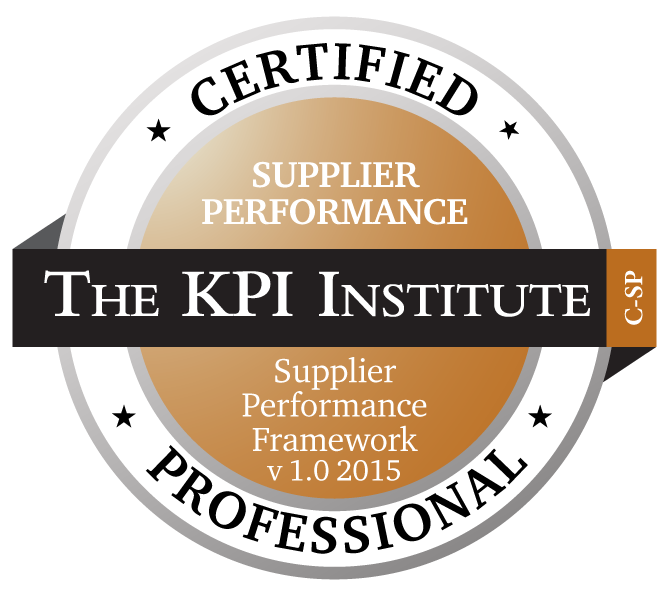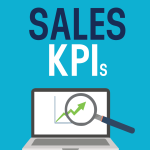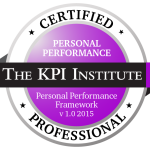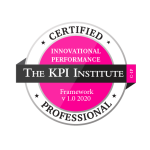Introduction
The training course is designed to develop the key competencies necessary to efficiently manage and growth the suppliers’ performance and optimize the relationship with buyers and other procurement stakeholders. Moreover, participants will benefit from a powerful learning experience mixing practical information delivery with well-designed practical activities and study cases, constantly stimulating the interaction between participants and knowledge sharing.
As a key differentiator, the course provided by The KPI Institute focuses on a practice-related side of suppliers’ management, using a comprehensive KPIs development and monitoring framework, backed up by a ready-to-use performance toolkit.
Benefits
- Efficiently manage the procurement activity area, based on an thorough understanding of the supplier relationship dynamics;
- Take adequate measures reflect the company competitive advantage in developing and proper usage of supplier selection and evaluation tools;
- Have a significant contribution as part of the team involved in procurement and strategic sourcing areas;
- Generate value for your business by applying a modern performance management framework;
- Enhance your practical learning experience by getting full access to a variety of relevant resources and ready-to use tools designed to help you attain outstanding results.
objectives :
At the end of this course you will be able to:
- Develop and implement a supplier selection process based on company competitive advantage;
- Use different supplier segmentation models;
- Identify risks and develop response strategies related to the management of suppliers’ relationships;
- Select relevant KPIs to monitor and improve your supply chain performance;
- Implement a rigorous supplier relationship strategy capable to generate added value at the entire organizational level.
– Supplier performance context
Understanding supplier performance
- The importance of performance in managing suppliers;
- Elements of performance management architecture in supplier management;
- Stakeholders involved in supplier management;
- Supplier performance as an organizational process.
Supplier selection
- Supplier selection process;
- Suppliers selection requirements and criteria development;
- Supplier selection methods and tools;
- Supplier evaluation;
- Success factors in supplier selection process.
Supplier relationship design
- Key elements of purchasing – procurement – strategic sourcing;
- Strategic sourcing approach of suppliers;
- Supplier panel development and management;
- Supplier segmentation models.
– Contracting and performance monitoring
Supplier contracting
- Challenges in drafting contracts;
- Risk identification in the contracting process;
- Positioning strategies when negotiating with suppliers;
- Contract management: key tasks and responsibilities;
- Steps to set up successful contracts.
Performance through Service Level Agreements
- SLA success factors (service and management);
- SLAs requirements setting;
- SLAs objectives;
- Building the SLA based on company competitive advantage.
Sourcing KPIs to generate suppliers’ performance
- Definition and usability of KPIs;
- KPIs and metrics selection;
- KPI selection sources;
- KPI selection techniques;
- KPI target setting;
- KPI documentation as a key success factor.
Supplier performance monitoring
- Scorecards and Dashboards development process;
- Setting objectives and clusters for a supplier scorecard.
– Supplier performance management
Supplier Relationship Management (SRM)
- The reasons for supplier performance management;
- Challenges in SRM: cost of poor quality;
- Collaborative approach in developing strategic partnerships;
- SRM Governance;
- Krause and Handfield Model of SRM;
- Assessing the SRM maturity level of an organization.
Supplier performance evaluation
- Internal capability for managing supplier evaluation;
- Key aspects of supplier performance evaluation;
- Performance evaluation criteria development;
- Evaluation methods;
- Managing non-conformances;
- Supplier performance reviews.
Risks and communication management with suppliers
- Risk management process;
- Risk analysis;
- Key Risk Indicators;
- Risk intervention plan;
- Supplier communication framework.
Review and certification exam
- Crouse review;
- Best practices in supplier performance;
- Future actions for performance improvement;
- Certification Exam.





